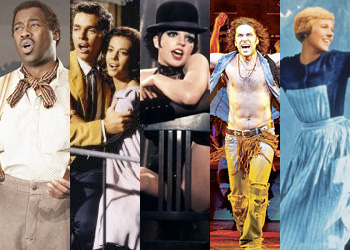
According to Wikipedia.com, the incredibly reliable Internet-based encyclopedia, the definition of “musical theatre,” often shortened to “musicals,” is “a form of theatre combining music, songs, spoken dialog and dance.” However, to a former teenage theatre-wannabe such as myself, it was a whole new world filled with bright and lavish costumes, intricate and dazzling feats of choreography, and songs that could bring one into utter euphoria, soul-crushing depression and everywhere and anywhere in between.
While the musical had its beginnings in theatre and opera, some of the greatest examples of the genre appeared in what many theatre aficionados know as the Golden Age of Musicals, a period of time between the 1940s to the 1960s, where writers and composers like Rodgers and Hammerstein, Sondheim, and Bernstein were making magic on stage. Their works were, and still are, hailed as classics, thus fixing their place in the medium’s history and in theatres today, as they are constantly remade, revived, and even reformatted into movies or television reality shows! These musicals take audiences to the Austrian countryside to sing about musical geography, the seedy underbelly of Berlin before the Second World War, or even the streets of New York where two gangs reenact one of Shakespeare’s classic plays with switchblades instead of swords. These are the top five classic musicals.
5. Showboat
Long considered one of the first musicals ever produced, Showboat depicts the lives of the people working on the Cotton Blossom, a Mississippi showboat, and highlights the themes of prejudice, racial tension and love. It was penned by Oscar Hammerstein and composed by Jerome Kern and was first introduced even before awards for musicals were given out; its Broadway debut was on December 27th, 1927, roughly 20 years before the Antoinette Perry Awards for Excellence in Theatre, more commonly known as the Tony awards, in 1947. However, because of its numerous revivals, the show won a Tony anyway in 1995, along with a Laurence Oliver award in its 2008 revival. The legacy of the show and its longevity is the reason why this musical starts this list.
Notable Song: “Ol’ Man River”
Notable not only because it is one of the few solos available for the bass singers, “Ol’ Man River” is also one of the most covered Broadway arias, having been sung by the likes of Bing Crosby, Frank Sinatra, and even the Beach Boys. The song is sung by a worker on a dock next to the Mississippi, lamenting the work he and his kin have to do while his white masters do nothing and dwelling on the endless rolling of the Mississippi river while they work. The song is considered an American classic by most musicians, but was changed several times due to its political incorrectness and subject matter. Regardless, the song remains a standard within Broadway’s repertoire and a standard with singers today.
4. West Side Story
Taking the classic Shakespearean tale of Romeo and Juliet and reinventing it to fit both the musical theatre genre and the rebellious teenagers of the 1950s, West Side Story is a musical that emphasizes the growing conflict between the immigrants and the residents of New York City, a conflict that was prevalent in the post-WWII America trying to get back out of the instability of war. To complement the lyrics written by Stephen Sondheim, who had already made his mark in the musical world, Leonard Bernstein’s Latin-influenced music transformed the set into the mean streets of the city in the middle of a gang war, sparked by the forbidden love of a Puerto Rican woman and an American man. This combination of lyrics, music, and story places it in the pantheon of classic musicals.
Notable Song: “América”
The brisk dance moves taken almost directly from various Latin American dances like the flamenco and the tango and the cheeky back-and-forth argument about their lives as immigrants in America is but a veneer to the song’s criticisms about the visions some have about the “American dream” and the horrible state that Puerto Ricans lived in. The song “América” still manages to strike a chord within immigrants moving to America, like myself, as some of the issues in the 1950s are still issues today.
3. Cabaret
While the other musicals simply dipped their feet in off-color humor and controversial subject matters, Cabaret dove straight into raunchy comedy and dark themes, and basically decided to bring the decadence of its namesake to the Broadway audience. Written by Joe Masteroff and Fred Ebb with music by John Kander, this musical is about a writer exploring the dark underground of Berlin before the Second World War and finding love in the form of a burlesque dancer. Thematically, the musical shows how Germany itself was being torn apart by the Nazi movement and how people were being affected by the prejudices set by the party through songs like “Tomorrow Belongs to Me” and “If You Could See Her.” This musical deserves its place in this list because of the themes it tackles and the raunch that it brought to the stage.
Notable Song: “Mein Herr”
While some may argue that this song isn’t a valid choice for this particular musical, since it was only introduced in later incarnations of the show, its portrayal in the movie, starring a much younger Liza Minnelli in a leotard that leaves little to the imagination, vouches for itself. The dance moves inspired by burlesque acts (among other things) serve as a visual aid for the song’s message of a woman telling her man that their love affair is finished, and provides a fine example of the dirty little deeds done in the Kit Kat Klub.
2. Hair
Although I may be pushing the category a little bit here, as Hair was made in the closing years of the 1960s, this musical dared to be different. While other musicals were drenched in soppy love stories and sentimental values, Hair tackled the issue of Vietnam, the Hippie movement and even drug use! Through James Rado and Gerome Ragni’s book and lyrics and Galt MacDermot’s music, the musical single-handedly redefined the idea of what a musical could do and the themes it could challenge, and set the stage for the modern rock-opera in the later decades. Oh, and did I mention that it featured onstage, full-frontal nudity at the end of the first act?
Notable Song: “The Flesh Failures (Let the Sunshine In)”
Infectious and ironically happy, this song has been used to express joy and invigoration of life several times in other media, from the theme song of the Kia Rondo to the ending theme of The 40-Year-Old Virgin after Steve Carell loses his virginity. It has been an anthem of joy, freedom, and the hope for peace in the world despite the hatred it dwells in, and one of the best ways to end a musical: the cast actually lets the audience participate, to sing and dance with them as they end the show.
1. The Sound Of Music
From the simple yet grand aria in Act I, where Maria is singing about the beauty of the lush mountainside of Salzburg, Austria, to the infectious ditty about musical notes, The Sound of Music is one of the medium’s most notable examples of a Golden Age musical as it has a gripping story of love and family values in the midst of political turmoil and takeover. The musical itself was actually inspired by the true story of the Von Trapp family, and was written by the most famous collaborators in the business, Richard Rodgers and Oscar Hammerstein II, who have also written other famous musicals like The King and I, Oklahoma!, and South Pacific. With both the pedigree and the performance to back the musical, I believe that the The Sound of Music deserves its place as the best classic musical in the business.
Notable Song: “Edelweiss”
This video is the only one featuring Christopher Plummer’s own vocals, which were dubbed over for the film’s soundtrack.
This is a personal favorite of mine, and not only because it’s in my vocal range. It is a simple song about one man’s love for his country, when it was under pressure from the Nazis, and his love for his own children, after Maria helped him realize how far he was detached from them. As simple as it is poignant, it deserves its place as one of the medium’s most memorable songs, even if it is often misconstrued as Austria’s national anthem.
Which classic musical do you think should be on this list? Let us know in the comments! Tune in next week, when I rank the top five modern musicals.




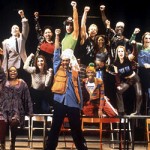
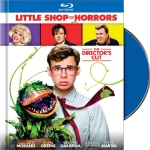
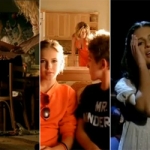
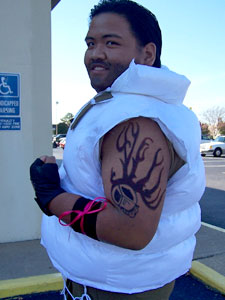 After finding out that the school's library was a welcome respite from the heat of the tropical island he inhabited, Paolo Jasa found out that books were a whole lot better than being a constant target during P.E. class; so much so that he developed a love for them that would last him a life time. His first forays in Science Fiction were in the novels of the esteemed I. Asimov, R. Bradbury, and D. Adams, while his adventures in Fantasy took him to the realms of Discworld, Hogwarts, and a Chicago that houses the only Wizard-For-Hire found in the local Yellow Pages, Harry Dresden.
After finding out that the school's library was a welcome respite from the heat of the tropical island he inhabited, Paolo Jasa found out that books were a whole lot better than being a constant target during P.E. class; so much so that he developed a love for them that would last him a life time. His first forays in Science Fiction were in the novels of the esteemed I. Asimov, R. Bradbury, and D. Adams, while his adventures in Fantasy took him to the realms of Discworld, Hogwarts, and a Chicago that houses the only Wizard-For-Hire found in the local Yellow Pages, Harry Dresden.
What about Fiddler on the Roof – deals with the issues of the balance between tradition and changing views, politics, religion, poverty, discrimination, etc. Also very good music.
You posted my Christopher Plummer clip, but didn’t mention that this is the only version with his own voice. It took months to track down that track, since he was dubbed in the film by Bill Lee. The only place in the world where you can hear him sing it himself is in my clip!
Hi Mark — I’ve added a note to the post explaining the uniqueness of your video. Your clip was the best one I could find and I hope our readers can appreciate that as well!
– Celeste, Assistant Editor
I really do appreciate the Christopher Plummer clip – love it!